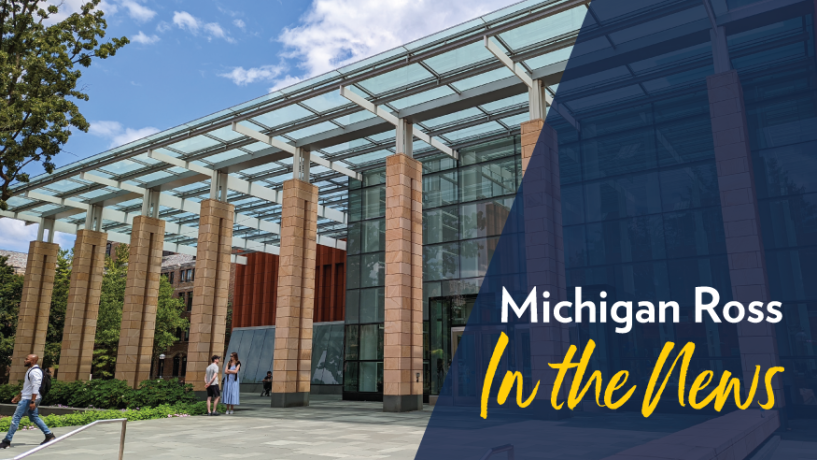Michigan Ross Professor Investigates the Impact of Local Climate Change Beliefs and Policy

In two newly published papers, Tom Lyon, professor of business economics and public policy, explores the effect of sentiment and policy on greenhouse gas emissions. Lyon and his collaborators found that community concerns and policy actions can significantly predict and affect greenhouse gas emissions from local facilities.
In his paper, “Beliefs Matter: Local Climate Concerns and Industrial Greenhouse Gas Emissions in the United States,” which was recently published in the Journal of Business Ethics, Lyon explores the extent to which the degree of local belief in climate change is a significant predictor of the rate of carbon emission improvements at local manufacturing facilities.
The study found that local beliefs about climate change, at both the facility and headquarter levels, significantly impact emission reduction efforts. The results show that plants in a community tend to implement more rigorous emissions-curbing measures when the surrounding community, or the community where the company is headquartered, considers climate change a real and urgent issue.
Interestingly, the study also challenges preconceived notions regarding environmental justice variables. “The conventional wisdom is that toxic pollution is reduced in areas where people are wealthier, Whiter, better educated, and more mobilized to vote. And the people that get hurt are poor, uneducated, people of color, and less mobilized. But it's not clear that would be the same story for carbon because it doesn't really have local pollution effects,” said Lyon. “In fact, it turns out that high income is actually correlated with an increase in emissions when it comes to carbon.”
Another dimension of Lyon’s research on facility-level greenhouse gas reductions is presented in another paper, “Filling the Climate Governance Gap: Do Corporate Decarbonization Initiatives Matter as Much as State and Local Government Policy?” recently published in Energy Research & Social Science.
The paper explores the efficacy of strategies intending to influence emissions reductions. The study categorizes these drivers into corporate-level initiatives, state policies, and city climate action plans. The findings indicate that state policies, particularly financial incentives, are the most impactful in curbing emissions.
Although state and local policies are the most effective strategies, Lyon shared that company policies such as building energy efficiency projects, updates to manufacturing processes, and energy-efficient transportation fleets did impact overall emissions at the facility level. The paper, which was a collaboration with former Erb postdoctoral scholar Benjamin Leffel, now at the University of Nevada, Las Vegas, and Joshua Newell, professor of environment and sustainability at the University of Michigan, has been selected as a finalist for the 2023 Haas Sustainable Research Business Prize.
Lyon's future research holds promise for further understanding and action. He looks forward to examining the impact of national policies, such as the Inflation Reduction Act, on facility-level greenhouse gas emissions, a study that could potentially shape future policy decisions. Additionally, he plans to investigate whether local voting shares, either GOP or Democratic, seem to influence emissions behavior, a line of inquiry that could engage a wide range of stakeholders.







